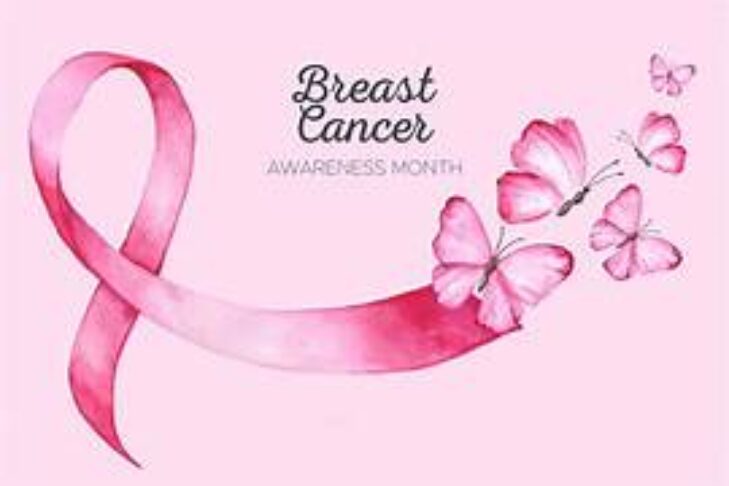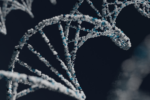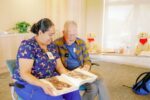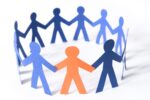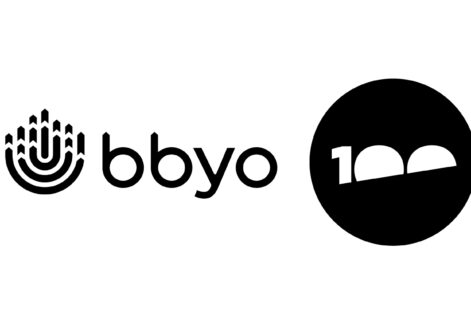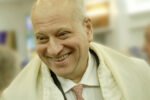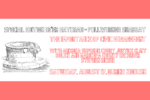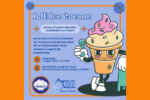This month is dedicated to raising awareness, educating people about the disease, and encouraging regular screenings to increase survival rates. Breast Cancer Awareness Month aims to create a global community that comes together to support and empower individuals affected by breast cancer. Early detection remains the most effective strategy in combating breast cancer. Regular mammograms, clinical breast exams, and self-examinations play a vital role in catching the disease at an early stage, when it is more easily treatable.
Breast cancer is one of the most common cancers among women, but did you know that some cases of breast cancer are hereditary?
What is Hereditary Breast Cancer?
Hereditary breast cancer refers to breast cancer that is passed down through generations within a family. In these cases, a person inherits a mutation in specific genes, most commonly the BRCA1 and BRCA2 genes, which significantly increase their risk of developing breast and ovarian cancer.
Causes and Risk Factors:
The main cause of hereditary breast cancer is a genetic mutation in the BRCA1 or BRCA2 genes. These genes are responsible for repairing damaged DNA and preventing the growth of cancer cells. However, when a mutation occurs in one of these genes, it can lead to an increased risk of breast and ovarian cancer.
In addition to the BRCA1 and BRCA2 genes, other genetic mutations, such as mutations in the PTEN, TP53, and CHEK2 genes, can also contribute to hereditary breast cancer. Individuals with a family history of these mutations have a higher risk of developing the disease.
Preventive Measures:
If you have a family history of hereditary breast cancer or carry a genetic mutation associated with this condition, there are several preventive measures you can consider. These include:
- Genetic Testing: Genetic testing can determine whether you carry a mutation in the BRCA1, BRCA2, or other relevant genes. This knowledge can help you make informed decisions about your health and potential risk-reducing strategies.
- Increased Screening: If you are at an elevated risk of hereditary breast cancer, your healthcare provider may recommend more frequent breast screenings, such as mammograms and breast magnetic resonance imaging (MRI). Early detection can significantly improve outcomes.
- Risk-Reducing Surgery: In certain cases, individuals with a high risk of hereditary breast cancer may choose to undergo risk-reducing surgeries, such as bilateral mastectomy (removal of both breasts) and oophorectomy (removal of ovaries).
- Medications: Some medications, such as selective estrogen receptor modulators (SERMs) and aromatase inhibitors, can help reduce the risk of developing breast cancer in individuals at high risk.
Hereditary breast cancer is a serious health concern that affects individuals with specific genetic mutations. It is essential to understand the causes, risk factors, and available preventive measures associated with this condition. By being proactive and informed, individuals at risk can make empowered decisions about their health and potentially lower their chances of developing hereditary breast cancer. Early detection and prevention are key in the fight against breast cancer. Breast Cancer Awareness Month reminds us that breast cancer does not discriminate—it can affect anyone, regardless of age, gender, or background. By coming together as a community, we can raise awareness, educate, and support those impacted by this disease. The Minkoff Center for Jewish Genetics focuses on BRCA awareness, education, referral programs and support of those who have tested positive for a mutation in their BRCA gene. Please contact the office or visit our website to learn more. www.GetScreenedAZ.org or 480-668-3347.
Sources:
- American Cancer Society. (2021). Inherited gene mutations. Retrieved from https://www.cancer.org/cancer/breast-cancer/understanding-a-breast-cancer-diagnosis/what-is-hereditary-breast-ovarian-cancer/inherited-gene-mutations.html
- National Breast Cancer Foundation. (n.d.). Hereditary breast cancer. Retrieved from https://www.nationalbreastcancer.org/hereditary-breast-cancer
This post has been contributed by a third party. The opinions, facts and any media content are presented solely by the author, and JewishPhoenix assumes no responsibility for them. MORE


